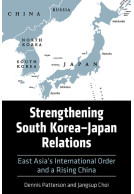Google Books previews are unavailable because you have chosen to turn off third party cookies for enhanced content. Visit our cookies page to review your cookie settings.
The Price of China's Economic Development (Hardback)
Power, Capital, and the Poverty of Rights
Imprint: University Press of Kentucky
Series: Asia in the New Millennium
Pages: 308
ISBN: 9780813161150
Published: 21st July 2015
Script Academic
Series: Asia in the New Millennium
Pages: 308
ISBN: 9780813161150
Published: 21st July 2015
Script Academic
Please note this book may be printed for your order so despatch times may be slightly longer than usual.
You'll be £36.00 closer to your next £10.00 credit when you purchase The Price of China's Economic Development. What's this?
+£4.99 UK Delivery or free UK delivery if order is over £40
(click here for international delivery rates)
Order within the next 1 hour, 52 minutes to get your order processed the next working day!
Need a currency converter? Check XE.com for live rates
(click here for international delivery rates)
Order within the next 1 hour, 52 minutes to get your order processed the next working day!
Need a currency converter? Check XE.com for live rates
The People's Republic of China has experienced significant transformations since Deng Xiaoping instituted economic reforms in 1978. Subsequent leaders continued and often broadened Deng's policies, shifting the nation from agrarianism to industrialism, from isolation to internationalism, and from centralized planning to market-based economics. As the world strives to understand the nation's rapid development, few observers have comprehensively examined the social and cultural price of the economic boom for the majority of the Chinese people.
Zhaohui Hong assesses the sociocultural consequences of these reforms in this provocative study. He contends that modern China functions as an oligarchy or plutocracy ruled by an alliance of political power and private capital where the boundaries between the private and public sectors are constantly shifting. This "power-capital institution" based on three millennia of Confucian ideology and decades of Maoist communism exercises monopolistic control of public resources at the expense of civil society and social justice for the majority of citizens.
The Price of China's Economic Development urges policymakers to alter their analytic lens. While industrial and commercial development is quantitatively measured, Hong argues that social progress should be assessed qualitatively, with justice its ultimate goal and fair allocation of resources and opportunity as the main index of success. This sophisticated analysis introduces English speakers to the varied and significant work of contemporary Chinese scholars and substantially enriches the international dialogue.
Other titles in the series...
Other titles in University Press of Kentucky...





















